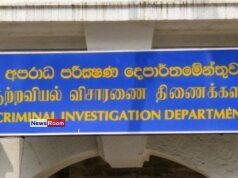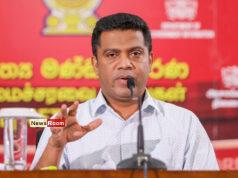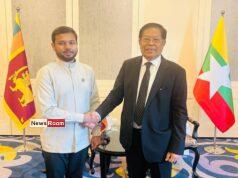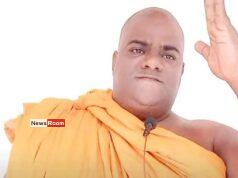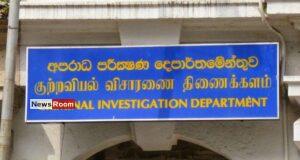BY Professor
A.N.I. Ekanayake
With the release of O’Level results recently once again, it is the season when educational qualifications are what is uppermost in the minds of millions of schoolchildren, their families and well wishers around the country. With emotions ranging from sheer delight to severe disappointment depending on the results obtained, one can speculate that for many families it is a time when concerns about their children’s education might have momentarily overshadowed even the travails of survival in a corrupt miserable country devastated by economic bankruptcy, social unrest, political instability, and contempt for the rule of law.
Consequently amidst the prevailing focus on education dominated by the hot news that 10, 863 obtained 9 A’s, 231, 982 qualified for the GCE (A) Level, and 6566 failed in all subjects, it is an opportune time to once more raise the vexed issue of 225 parliamentarians arrogantly refusing to reveal their educational qualifications to the voting public whom they claim to represent.
The stubborn resistance to voluntarily divulging such basic information is tantamount to spitting in the face of the voters who have elected them. The scandal is made worse by the revelation of the late Prof MOA de Soysa in 2017 that in that parliament 94 MPs had not even passed their GCE O/L Level examination while there were only 25 university graduates among the 225 legislators. For obvious reasons one can speculate that the figures for the 225 MPs elected in 2020 are likely to be even more depressing. That may explain why they are so secretive about their educational attainments.
By contrast in the UK 85 % of members elected to the House of Commons in 2019 had been to university with 57 % of cabinet members having studied at Oxford or Cambridge! In Singapore 20/22 cabinet ministers have a postgraduate degree. In the USA it has been reported that the vast majority of Members (94.8% of House Members and 100% of Senators) at the beginning of the 116th Congress held bachelor’s degrees while 68 % of House Members and 77% of Senators had educational degrees beyond a bachelor’s degree. Surprisingly even in the Indian Lok Sabha 394 MPs (75 %) possess at least a university degree.
Such comparisons put Sri Lankan parliamentarians to shame. No wonder they stubbornly refuse to make a voluntary declaration of their educational qualifications consistent with the voter’s right to crucial information necessary to make an informed choice when voting. It would appear that further to a citizen seeking this information under the RTI Act in 2021 some cringing parliamentary official had written in desultory fashion to all MPs requesting them to furnish information about their educational and professional qualifications. Notwithstanding the inquiry being made in the gentlest sycophantic and submissive tone imaginable asking MPs to “kindly” give this information and even that only if they were “willing”, the inquiry apparently fell on deaf ears for not a single member had responded even after the lapse of two months! The sudden hush that seems to come over the House, when its occupants are asked about their educational qualifications, contrasts with the raucous shouting big talk and bumptious self-confidence of members at other times when the supreme legislative body in the public perception so often sounds like a fish market.
The excuses given for MPs refusing to state their educational qualifications are of course tendentious. A leading weekend newspaper reported that a parliamentary information officer had stated that such information was ‘personal’ meaning that its disclosure would be a violation of privacy. That of course is the kind of nonsense that makes one question the intelligence and education of parliamentary officials as well! It is not as if people are asking MPs about their sexual preferences, whether and, if so, how frequently they drink, smoke, chew betel, or consume narcotics. Nor are people asking them to divulge whether or not they brush their teeth and if so how frequently, how much they weigh and what is their abdominal girth given that sometimes obesity signals a history of gluttony and a sedentary indulgent life style that might constitute a poor example in a politician who canvasses their vote having set his sights on say becoming a Minister of Health or Education ! Obviously, no one disputes that all such information is personal private and strictly confidential. Nobody expects MPs to divulge such details about themselves.
Not so with educational qualifications. You cannot get a job in this country without stating your educational qualifications in the application form. Why must parliamentarians who plead for your vote be an exception when they apply to become legislators? Such secrecy does not make sense. It is neither fair nor logical. For voters to be informed about the educational attainments of their potential representatives in order to make an informed choice is as fundamental as knowing whether or not the politician who canvasses their vote is illiterate, has been certified mad by a psychiatrist, or has a history of conviction by a court of law.
A second flimsy excuse proffered by a parliamentary officer is that the Constitution does not specify a minimum educational standard to be an MP. The implication is that therefore an MP is not bound to voluntarily divulge his educational qualifications to the electors. But neither does the constitution specifically forbid a parliamentarian from beating his wife, or committing adultery. But it goes without saying that he has a moral duty to not indulge in such behaviour. Nor does the Constitution lay down that a parliamentarian must be a person of high integrity, devotion to duty, and dedication to service. But it goes without saying that without such attributes a so-called people’s representative degenerates into a self-serving political parasite.
The Constitution is not to be equated with the sacred texts of religion. It is not the last word on the ethical standards, moral imperative and call of duty of those who claim to represent the people. Whatever the Constitution says or does not say, parliamentarians have an inescapable moral duty to voluntarily disclose their educational attainments to voters.
The final objection to such disclosure is the most ludicrous. It has been claimed that an MPs educational qualifications have no relationship to any “public activity” and that such disclosure is not necessarily justified by the larger” public interest”. Such poppycock ignores the fact that in a democracy there is no more important “public activity” than voters exercising the franchise. Just as educational attainments are the basis on which people are selected for ordinary employment, for voters to know the educational qualifications of candidates is of the highest ‘public interest’. Aspects of the personal lives of those who aspire to public office are of the highest public importance. Politicians are not entitled to the luxury of hiding their personal lives behind a cloak of secrecy especially on such matters as their education which is of critical importance in assessing their fitness to be legislators. Those who are unduly finicky about the privacy of their personal lives should stick to the relative obscurity of private life avoiding the glare of prestigious public office where their private lives inevitably and with good justification become a legitimate matter of public interest. They cannot have the best of both worlds.
Whatever the moral and ethical imperative for members of parliament to voluntarily disclose their educational attainments as argued here, it is a vain hope. Given the crass insensitivity of politicians to enlightened public opinion nowadays we would only be deluding ourselves to imagine that anything of the sort would ever happen. In this situation it is hoped that at least the following might take place:
Those MPs who are in sympathy with the sentiments expressed in this article led by Opposition party leaders could formally take up this issue in parliament and propose that all 225 members should make a public declaration of their educational attainments. If such a proposition is accepted either unanimously or at least by a majority vote, nothing more needs to be said. But that might require a miracle.
= If as seems likely such a proposition is flatly rejected, those members on both sides of the house who have no qualms about declaring their educational attainments, can for their part go ahead and do so by name unilaterally irrespective of those who decline to do so. This may include a significant number of MPs who are well qualified as well as some who are poorly qualified. However, any embarrassment the latter might feel at disclosing their lack of academic achievement, will be overridden by the appreciation of a grateful public who would value their honesty openness and sensitivity to the public interest whatever their educational limitations.
=The remaining politicians who in their stubborn arrogance still refuse to make a voluntary declaration of their educational attainments, will thus identify themselves by a process of exclusion, and be despised by the public for lacking either education or respect for public opinion, or both.


